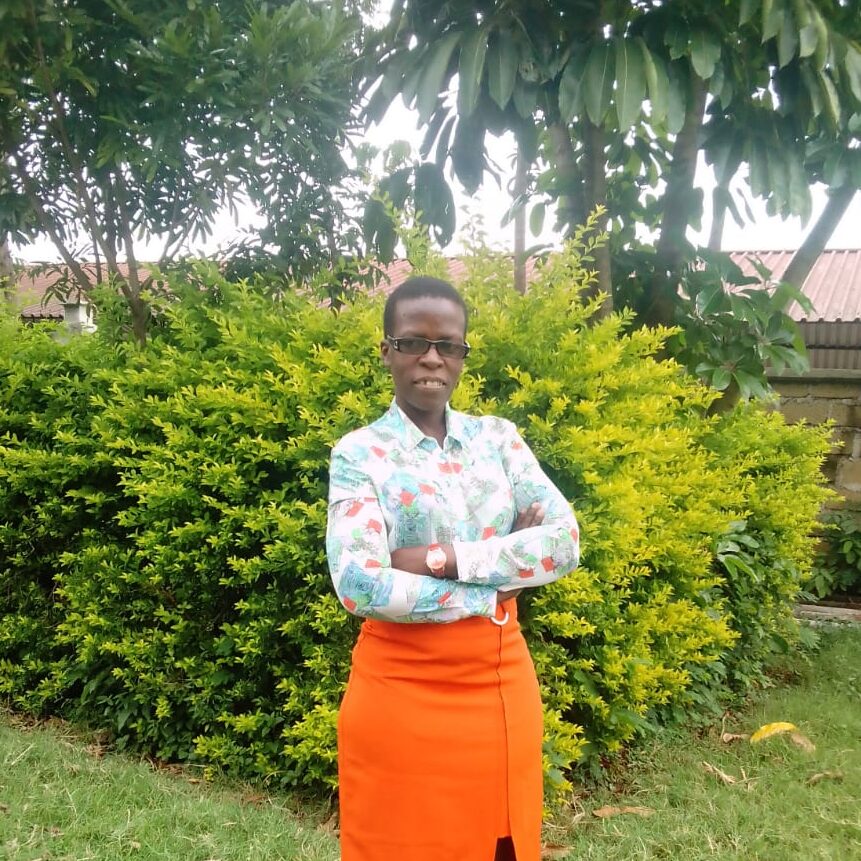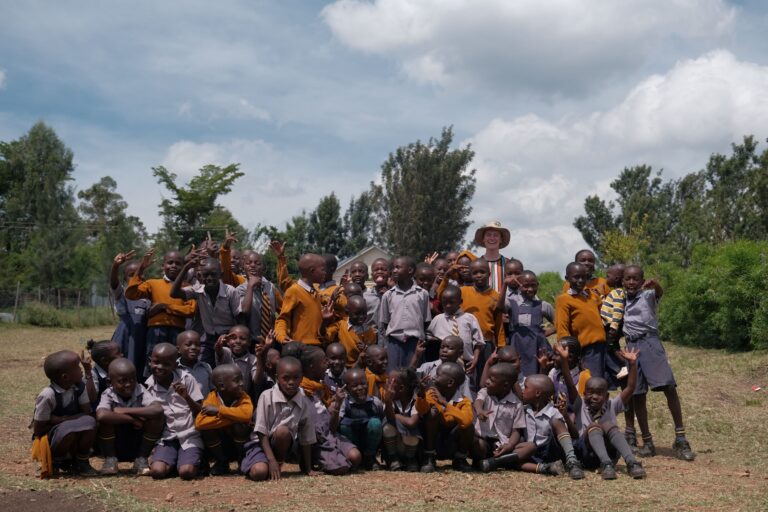Interview with Grace Atieno Sijeni
Thank you for taking the time to come and speak with us. It’s a privilege to document your story of Pro-Active and your journey.
Can you tell me a bit about yourself, where you grew up, how long have you been teaching, and how long have you worked for Pro-Active?
I am Grace Atieno Sijeni. I was born in Uganda in 1975. My father was working in a cement factory in Uganda. Later, when the government changed, Amin Dada, [became] the new president. My father fled from Uganda because there were fights. They were some of the people who were to be killed. So he escaped and came to Kenya. My mother and I we went to Nairobi.
I grew up in a slum. My father worked with Blue Triangle Cement and because we left with nothing, we had to start a new life from scratch when we came to Kenya. Life was not all that easy. I went through kindergarten and primary school. I had to drop out of secondary school because of finances, [and began] working in a factory. I got married in 1996, at around 20 years old to my husband who I’m staying with now.
My father died when I was 22 years old. When he died, I started looking for something to do. My father was a polygamist. He had two wives, and we were around 16 children. He was supporting all of us, so you see it was not easy. It was a struggle.

I became interested in the kindergarten. There was a lady we worshipped with who accepted me to her school. I started teaching as an untrained teacher. The passion that I had for children led me to go and teach them. I taught from 1998 to 2001 as an untrained teacher. Then I left Nairobi and came to Homa Bay with my two children and my husband.
I was employed in a certain school where I was only earning 1500 KSH per month [around $12USD at the time]. But I wanted to know more about teaching. I did not give up. After that, in 2002, second term they could not afford to pay us. There was much poverty in the area, and the parents could not afford to pay school fees, so our salary would delay. It’s not even a salary, just a wage. It was so little, to sustain somebody. I went to another school. I was still untrained, but I knew how to teach, and the pupils loved me. When I left the school, the owners were asking me, “why have you gone, what’s the problem”, but [the new school was better located]. I joined the new school and was paid 800KSH per month. 700 less. I persevered.
There was something unique in me which my sister-in-law discovered. This was my passion for children. [In 2003, she] helped me start Pro-active school, with the intention of letting me be in charge of my own operation, so that my talent would not die, and with the intention of nurturing these children. It was like that until 2008 when my sister-in-law left me in charge of the school. This was when Good Samaritan [now ICGN] started working with us.
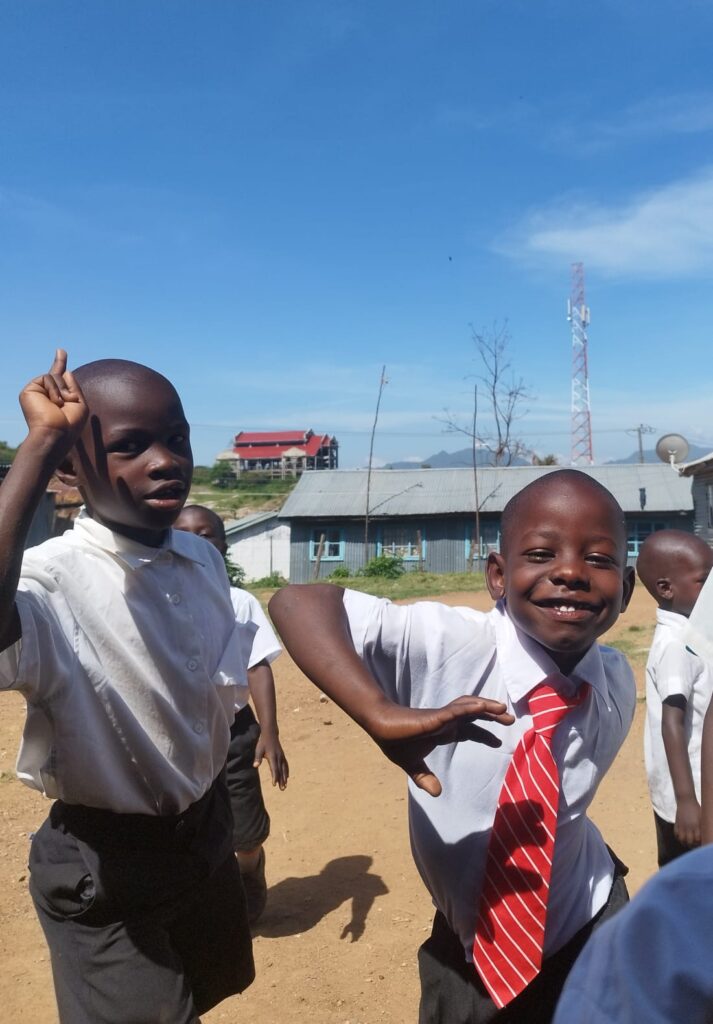
What’s your favourite thing about Homa Bay?
Homa Bay is a cosmopolitan place, and it is growing. Since I’ve been here, it’s grown and changed so much. When I ventured this way into starting a school, I had in mind the way I grew up. I could see how I had suffered. My first pair of shoes I received in grade 4. I used to walk bare footed until then. Now, in Homa Bay, you cannot see children barefoot like that. Even if it’s sandals. Homa bay is not that bad.
The best thing is that the people here have that passion to learn. Because most of them are vulnerable. The area where the school is, is a slum. At least it is a place where you can start an institution like [Proactive] and help so many children.
Do you ever bump into old students who you used to teach, which are now grown up?
My first students are grown up. Some of them have graduated already, and I’ve attended their graduations. Even my second born daughter is a graduate of proactive. All my [five] children, except my first born have gone through that school. The first lot of Proactive students have one year since graduation. The second lot have just graduated. I also meet people who are in secondary school. If I could collect them all, you’d see them, and they could tell you how they started. When I see them, I just feel happy because I can see most of them are going to school, doing well. There has never been a Pro-Active product who has gone astray.
How successful has Pro-Active been in the past? Can you summarise growth and history of the institution?
In 2007 there was post-election violence. I had talked to one of our spiritual leaders, the pastor at our church, and they encouraged us to build extra classrooms. But when there was post-election violence, we had to stop the construction because the parents had to take the children out [of school]. That also made us set back with just grade one. In 2009 we moved to the current place in Makongeni. There, we’ve been renting ever since.
As the years went on, we looked to expand. Around 2011-12, we thought of having a plot of land just behind where the row of classrooms are currently, and had a fundraiser from friends. We invited friends and well-wishers for a fundraiser. Even my husband took a loan out to support us, because it was my passion and my talent.
We had a lady called Lynia from Sweden who volunteered and built and furnished a class. She built that for 130,000KSH. It was a good class well furnished with blackboard and floor and even chairs she bought.
We had grown to 300 pupils, and the school went up to grade 7.
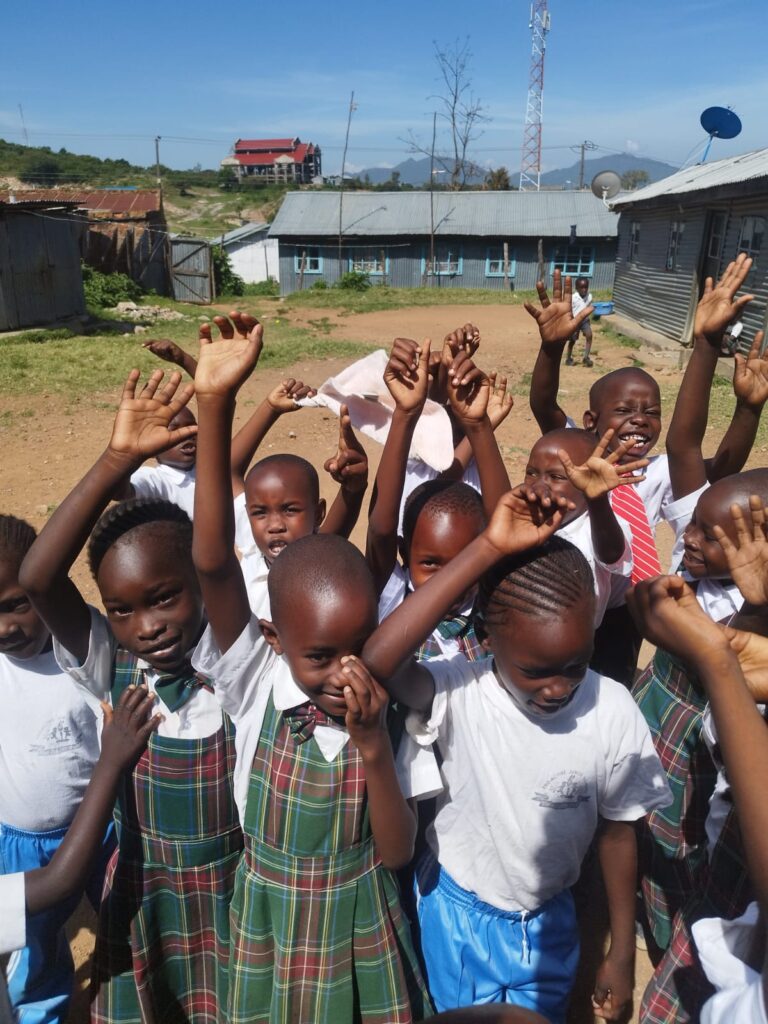
What have been the biggest setbacks and challenges in Pro-Active’s history?
In the process of buying that land, we had paid for everything and were just waiting for the title deed. But unfortunately, they had directed us to the wrong person. So we started a tug of war between us and the sellers and we had to follow the procedure of going to the court or the police. When we started building, they refused. They didn’t want us to build classrooms on the land next to their homestead.
We had ongoing problems during that time. The person wanted us to vacate and demolish the classrooms. We tried to negotiate to rent them, but he refused. When we opened in 2018 January everything was in a mess. The owner said ‘you have to move. I don’t want to see you here.’ So that was the big challenge we had in 2018. I called Nixon and asked him what we could do, but we were powerless. Then it forced us to demolish all the classes except the class that Lynia built. It is still there, we sold it to that person so that we could get money to pay for the demolition.
That was the big challenge and the time that we went back to 0. Back to square one. When we reached [late] 2019, things got worse. Now we didn’t have pupils, people were saying ‘this school will not pick up.’ But I did not give up, so I started venturing for another way that we could survive. I opened a hotel, serving meals in the daytime, which would support the kindergarten.
When it came to 2020 first term, the pandemic came. The whole world had a problem. By that point we only had 12 pupils. The pandemic hit, and nobody was in school. It was all over. Come 2021, I had left the town and had gone up country to begin farming. I had to take up farming to sustain myself.
In 2021, the government announced that the schools are now going to be opened. I told my husband, ‘there’s nothing I can do, I’m going back to work.’ We had to rent a house [with only] two rooms. I started with around 2 children. The second day, 4. And it increased like that. By the end of two weeks I had 20. By the end of that time I had 35. I said I’m not going to give up, I must soldier on. That is why I’m here until now.
Nixon has been a great source of encouragement for me. He used to tell me. ‘Just pray. Don’t give up. Just soldier on.’
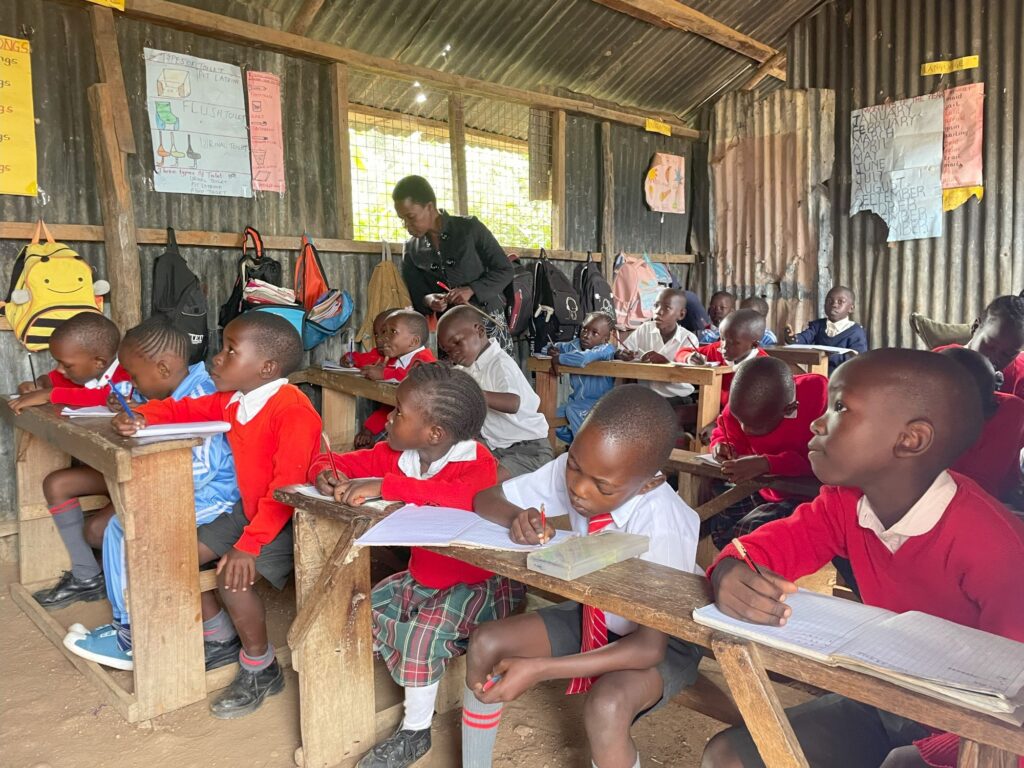
How is the situation at the moment now that you’ve recovered from challenges such as the pandemic and losing many students?
Today, we still have challenges. We are in a rental plot. We pay every month 10,000KSH so we can stay there. The challenge is [not only] renting that plot. We are paying rent, but the owner is not serious. He doesn’t make the structure well; we pay him and after getting money he’s quiet. He even doesn’t appreciate us when we pay him. I just pay through the phone and he’s just silent.
We’ve been battling with him, “come and do this”, and at the start of this year we had to do [our own] renovations to two of the classes. If you look at two of the classes, the floors are still new. It was bad, the way you see the other two classes. Only dirt. Some funds came from the Good Samaritan, some funds came from the parents, [who donated] ballast, sand, cement. That is why you can see two of our classes have better floors.
Now, we were planning to do the other two classes [during] the midterm break. But unfortunately, we don’t have the funds. Because doing the two classes it should [cost] 30,000KSH [$215 USD]. If we have 20,000KSH then we could even manage it because we could ask some of the parents to help, as they are trained masons.
That is the big challenge. That we have two classes with the floors still bare earth, and that the building is old, the iron sheet walls are not good. Two classes are pathetic. If we don’t sprinkle some water, then it will be dusty. In the evening you have to sprinkle again so that the dust cannot come out. Because of that dust you will find that the children have runny noses all the time.
Another challenge is that some parents cannot afford books and writing materials. The system of education has changed in Kenya, and it now needs a lot of materials. We need playing materials. We need different books for different classes. We need writing materials, we need balls, and games. We lack so many things, and at times we just have to improvise. We have improvised even the balls, we make them out of old socks.
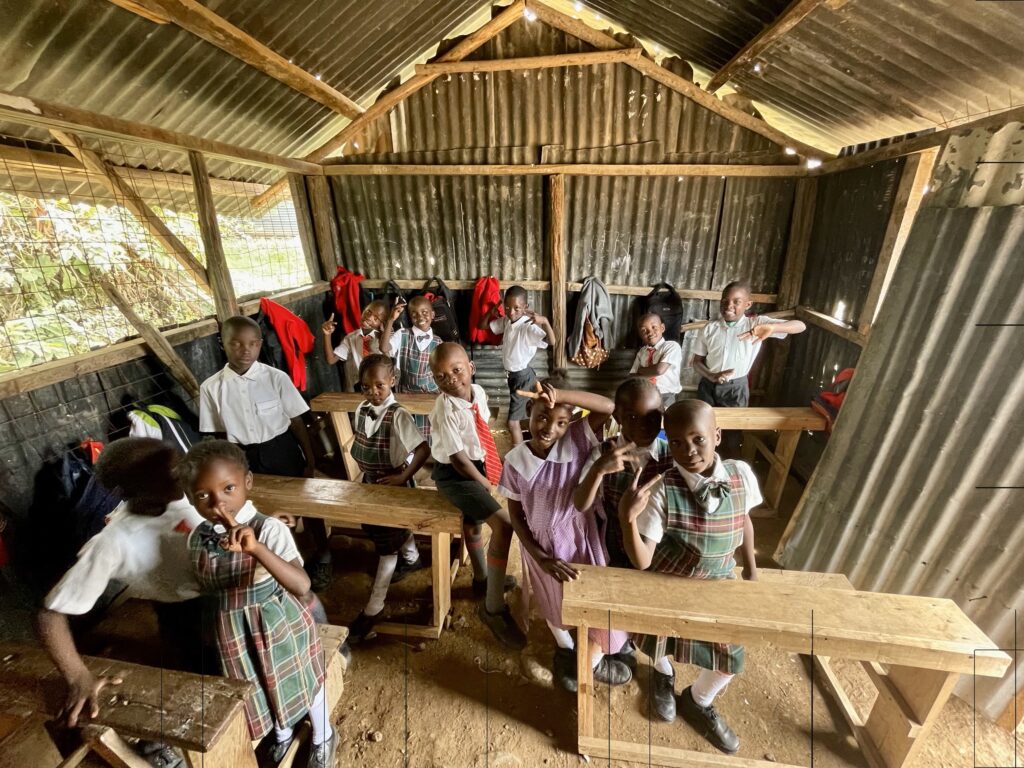
What do the children learn? Can you explain some of the difficulties of teaching multiple languages?
This area, the language that the children know from home is Luo. Most children when they come, they only know their mother tongue. They don’t know any other language. So in Kenya we have two languages, English and Kiswahili. But we cannot teach them at the same time, we have to start with one. We have to first teach them the national language [Kiswahili]. We encourage them not to speak in their mother tongue: learn to speak the national language.
And this national language, it’s only one subject in the school. The other subjects are written in English, all the textbooks are in English except one: Kiswahili. But we are forced to teach them the [Kiswahili] first. And that is specific for here in Homa Bay. In Nairobi, they come to kindergarten already speaking Kiswahili, so learning just the one new language English is easy.
We have 95 children, and 5 teachers. The number that the government recommends is 1 teacher to 30. So as of now we are safe.
We train the children holistically, not only education, but their spiritual, physical and emotional wellbeing. We teach them moral values.
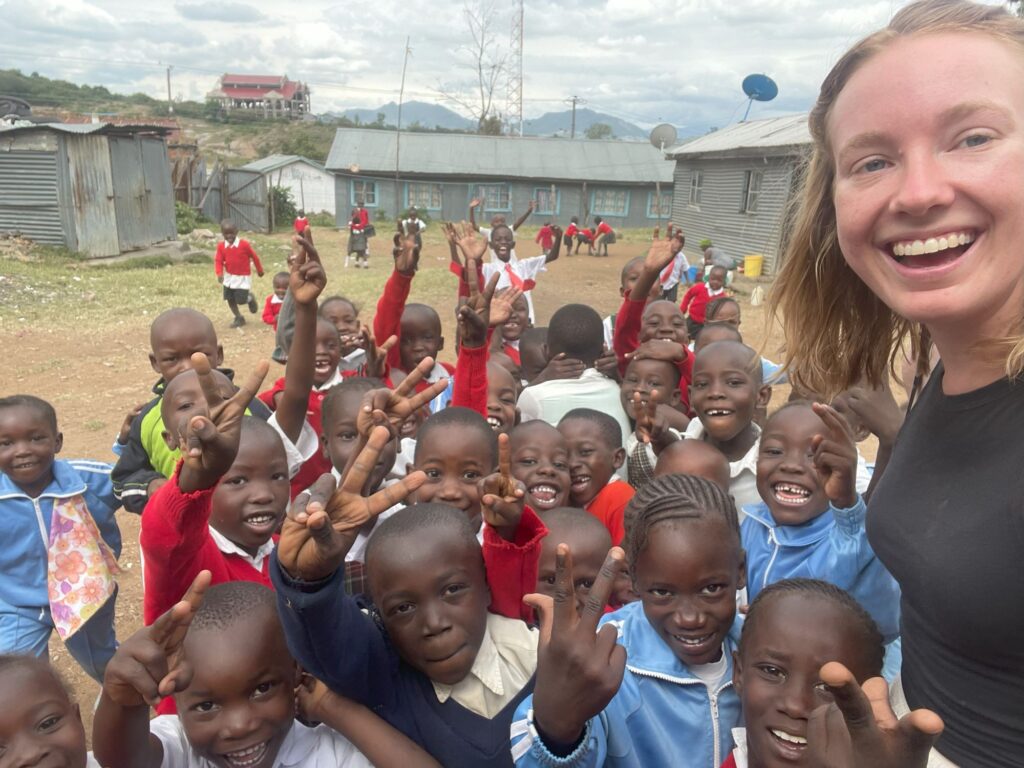
Can you describe how partnering with our organisation has helped Pro-Active in the past? How can Imara Community Growth Network best hope to assist Pro-Active in their work looking forward?
Good Samaritan has helped us a lot. When we bring volunteer teachers from abroad then it really motivates children to stay in school. We have around 4 children who were sponsored through our partnership with Good Samaritan. They were very vulnerable, but right now they can smile, because they have managed to go through the secondary school, they have finished and now they are in the university. And in the university, there are some loans they can access to help them along with their studies, which is amazing.
We had those who were orphans who used to get full support from the Good Samaritan, even the uniforms they would get from the good Samaritan. There was another volunteer who came and brought bags. There was another who brought shoes, these we would distribute to those who were vulnerable.
Even right now, with Imara, I think it is the same thing. The name is changed, but it is still the same partnership. Anything we want, they provide. The ones we can’t provide for, we’ll see what we can do. If they can come and sponsor a child, we are just grateful. If they can see if the classes are not good, and say ‘let’s do something about it’, we are grateful.
In the future, we would hope for a plot of land to call our own for the school, and build on it. Then the school will continue growing. Right now, we are restricted to grade 2 because for grade 3 there are many things required by the government which we cannot meet, because we are in a rental plot. So Imara has the potential to help these children a great deal.
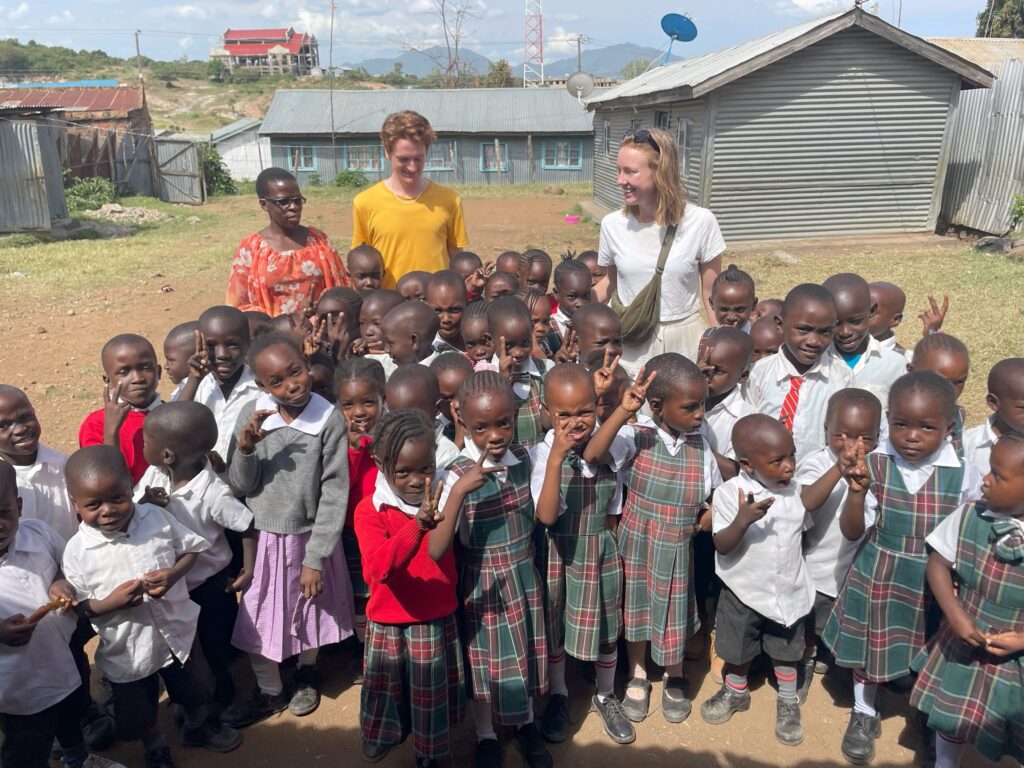
What are the core values of Pro-Active?
We believe in good education. We believe in partnering, we believe in teamwork. I cannot do it by myself, I have to collect ideas from other people. For the school to reach where it is, to prosper, you have to share. We have to share.
We [aim] to make the community around us understand the value and importance of education. The children who are just sitting idle, the parents cannot afford school fees, we would wish for them to come to our school so that they can be in a safe place where we can nurture them.
We believe in good education, teamwork, and hard work. We have to. And we have to persevere.
Do you and the other teachers ever get a chance to relax and socialise outside of the classroom?
Yes, we do. Most of the time, you will find us sometimes after class sitting together. And when you come to Proactive you will not notice who is the head teacher. We are all equal. And we interact very well between ourselves. We are one unit, and we work together.
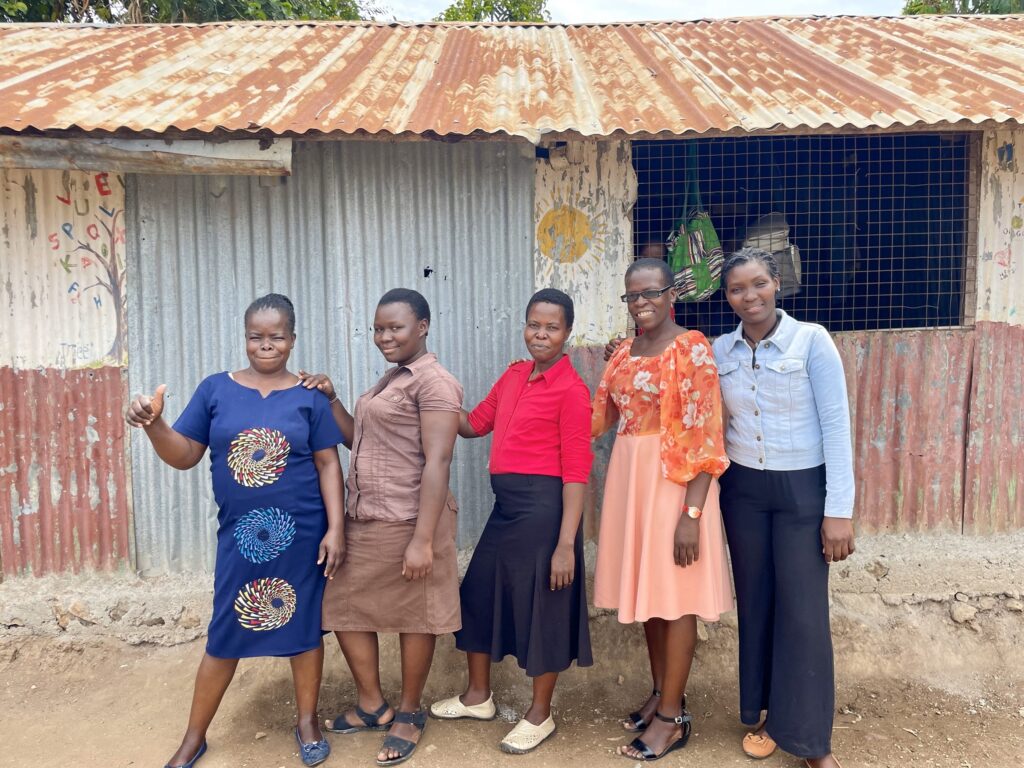
And finally, any last message to our supporters?
Whoever may be reading online about Proactive, we would like to thank you, anybody who is willing to help Imara. Through Imara, Proactive will prosper. Because we are one thing, and we believe in teamwork.
If anyone is willing to support the children. You can support with what you have, not necessarily money or dollars. Materially, emotionally, physically, we welcome anyone who can come and assist us and help in all these areas.
Anyone who is willing to assist, you can just ask. We are here for the betterment of our children, not us.

